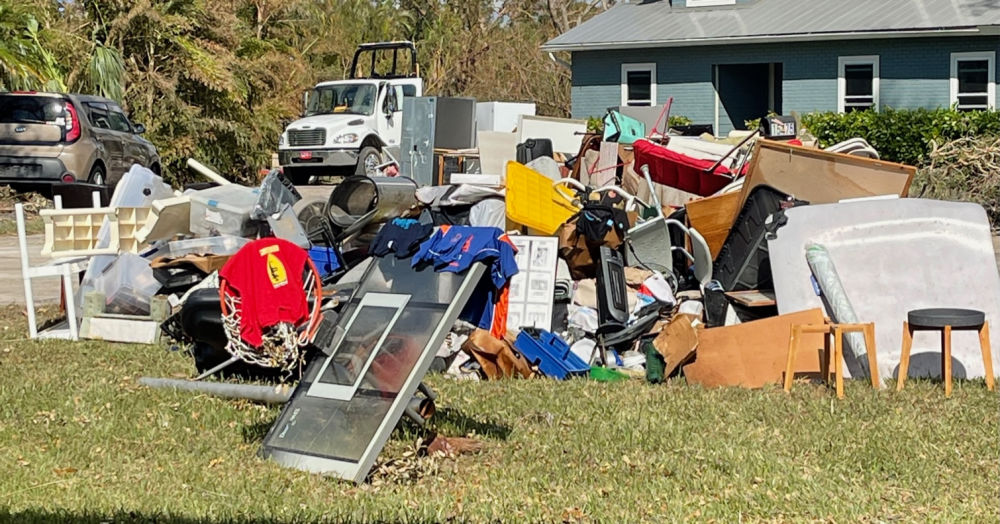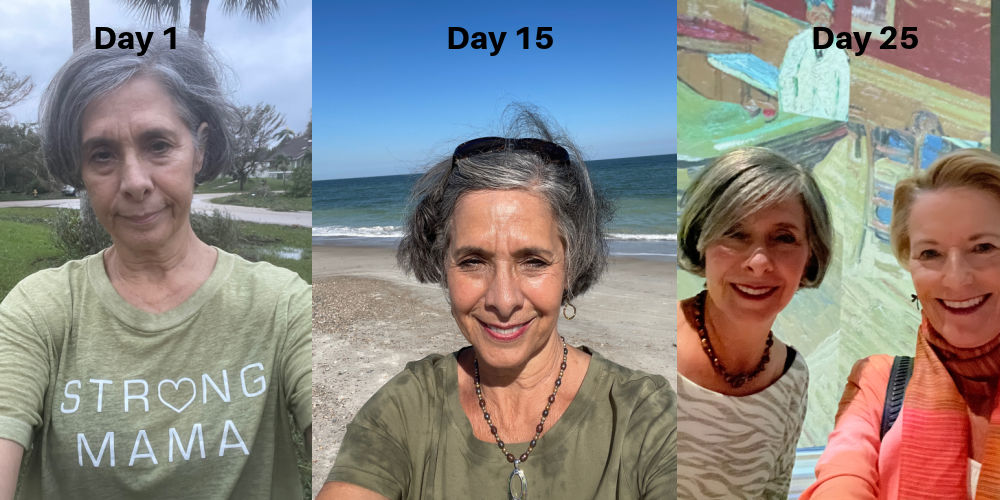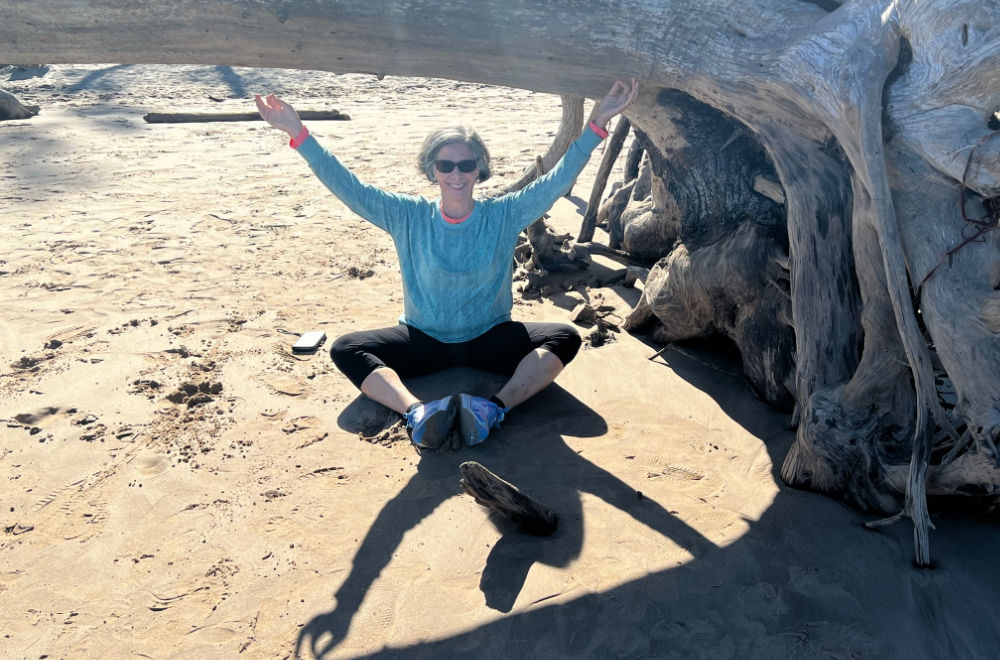
5 Things to Say and 5 Things Not to Say to A Trauma Survivor!
I am home again after a month of recuperating from Hurricane Ian. My recuperation was not necessarily physical, more emotional and mental. I wrote about that last week. During this time, I observed both my own reactions and the reactions of other traumatized people to comments being made to them like “it is only things” or “at least you are ok” or “there were many people who lost everything,” These comments were made by well-meaning friends and family who were often at a loss of what to say and what not to say. Over my life, I too have, inadvertently, meant well and said the wrong things causing more pain and suffering.
However, years ago, when my closest college friend lost her mother unexpectedly, she did school me in the importance of saying something, rather than hiding behind my own discomfort for her. Recently, another friend and colleague of mine suggested that I write an article on things to say and not to say to someone post-traumatic event. So here it is. Some of this is based on my own experience and some is based on research I have done from experts. I am, by no means, an expert on grief and loss, but I have a big heart and I want to help. If you feel this way or have friends who are at a loss to offer comforting words to people in Fort Myers or wherever else there is a trauma going on, please share this freely. Of course, I welcome your thoughts and comments and experiences too.

5 Unhelpful Things People Often Say!
- It Could Be Worse: Ironically when my children were young, we were very fond of the James Stevenson book series, It Could Be Worse. At that time, it seemed like an appropriate and fun lesson to teach children who believed every little problem was insurmountable. However, as an adult, HeartMath coach, health coach and yoga teacher, I realize that diminishing someone’s experience does make it worse. Also, comparing our misfortune to others is neither helpful in the short term or long term. It only causes isolation, anger, shame, blame, guilt and fear.
- It is only Things: Yes the State Farm commercial made a big deal about being able to replace things, not people. But what I have come to realize and learn over my life is that it is not the things, but what the things represent to us that cause us to grieve. And the more things we have accumulated during our lives and experiences, the more we feel at a loss when we no longer have them. This is not shallow or inconsiderate to the people who have lost people, it is a validation of what matters to the person who lost their memorable things.
- Why Didn’t You Say Anything Sooner? Try not to be offended when someone is not ready to talk to you about what has happened. This is not about you. Many people have a difficult time discussing what they have been through after a trauma. They often wonder if anyone will believe them or if they will be made fun of, or if they are imagining some of it. If and when someone is coming forward to you to talk, consider listening not only with both open ears, but also an open heart. (Click Here for a combined HeartMath Coherent Communication ™ and Shift and Lift ™ Practice that might help.
- It is time to move on and get over this: While this might be true, it never helps anyone to hear these words said in this way. Most likely the person is trying to get over it and move forward in life, but as long as the trauma stays stuck in his or her body, this will be difficult. You could offer to take a walk with them or provide a gift card to a gentle yoga class. (Make sure the teacher is trauma sensitive like me) Click here
- You need Professional Help or It is Time to Report what happened to Authorities: Someone who has experienced trauma went through something that was completely out of his or her control. Telling them what to do puts you in control of the situation. Accept that everyone copes with trauma differently. If that person wants to go to the authorities or seek a professional, it is up to them. If they are interested, you might just offer them a list of resources after asking them “are you open to me gathering information on professional resources that might be able to help?“

5 Things that Might Help A Person who has Just Experienced Trauma
- Ask if they want to talk about what they went through: By giving them a choice, you are showing care and compassion, but not being intrusive. Let them express whatever feelings they are having. Your job is not to judge or fix, but to provide a safe place where they can express what is in their heart and on their minds.
- Share with them that you are available to them: Think carefully before you say this line to make sure you are really physically and emotionally available. In other words, make sure you don’t offer something that you can not give out of guilt or obligaion. For instance, if you know they need a place to stay, but you are not in a position to offer them a place, then do not offer it. Whatever you offer even if just a kind word, please do so with an open heart. Having just stayed in two places with friends, I can tell you it was no small feat for them to open up their homes to me for an extended period. Even though I did all that I could to contribute like cook and clean up after myself, I knew my presence was stressful for them.
- Assure them that what they went through was not their fault: Let your loved ones know that they didn’t do this to themselves. They, more than likely, deep down, already know that, but if someone else tells them, then they are more likely to believe it.
- Assure them what they went through was deeply unfair: When the notion of fairness comes up, sugarcoating the situation tends to make it worse. Instead, state what you know – that this isn’t fair at all. It is a great gift to share honestly how unfair everything can feel after a traumatic event.
- Help them understand that healing is always possible and may take longer for some than others: Each of us go through the stages of grief at a different pace and different way. But there is no way to bypass grief if we want to heal. Reminding people that you understand that they are healing even if they do not feel like it, can be very uplifting.

The way we word things is so important when someone has just been through a trauma. I am still learning what to say, what not to say and how to say things. I hope these words help you as you are navigating your own trauma or how to help your friends, family and neighbors through traumatic events in their lives.
Some of this information has been collected from the Grief Recovery Center, Mental Health and Counseling Services. You can access their website here.
Namaste,
Andrea




I recently lost my oldest son… can you help me with meditation to stop grieving as deeply as I am now. I sob often and my youngest son is worried about me.
Dear Patricia, First of all, I want to express how deeply sorry I am for your loss. There is nothing worse than losing a child. So you have every right to be crying all the time. Your other son is trying to help you in the best way he can. I would love to help you. Can we set up an initial time to meet online or in person first? I am available most afternoons. I teach and coach most mornings. What would work for you? With deep kindness and love, Andrea
I know I am guilty of this. I don’t mean any hurt, and words are fluid.
Yes it happens. I am glad this post is helpful. Warmly, Andrea